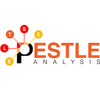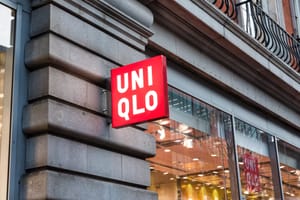Our Uniqlo PESTLE analysis is looking at the success story of one of the world's top 5 clothing brands and examines the factors that influence its operations.
What comes to your mind when you think about Japan? If you have an interest in clothing and like to dress up casually, then Japan will always remind you of the famous clothing brand Uniqlo.
Uniqlo is a famous clothing brand that has its origins in Japan. If you visit Japan, you'll see a Uniqlo store after every corner. However, it's not that the brand is only famous in Japan. Wherever people prefer casual, comfortable, and cool clothes, you'll also find a Uniqlo store.
The brand that was once an "All men's brand" changed its business model and name after almost 40 years to become a unisex brand under Uniqlo. After that, the brand emerged from Japan's markets and spread worldwide due to its low prices, comfortable clothing material, and cool outlook in no time.
Uniqlo's transition made it one of the most significant clothing brands in the entire world. Today Uniqlo is recognized among the world's top 5 clothing brands. Looking at Uniqlo's success story, today we have decided to conduct a Uniqlo PESTLE analysis.
The reason for conducting a Uniqlo PESTLE analysis is to highlight what external factors affect the brand's operations. However, before proceeding further, let's discuss a little about Uniqlo, so you guys know the brand's history and current operations.
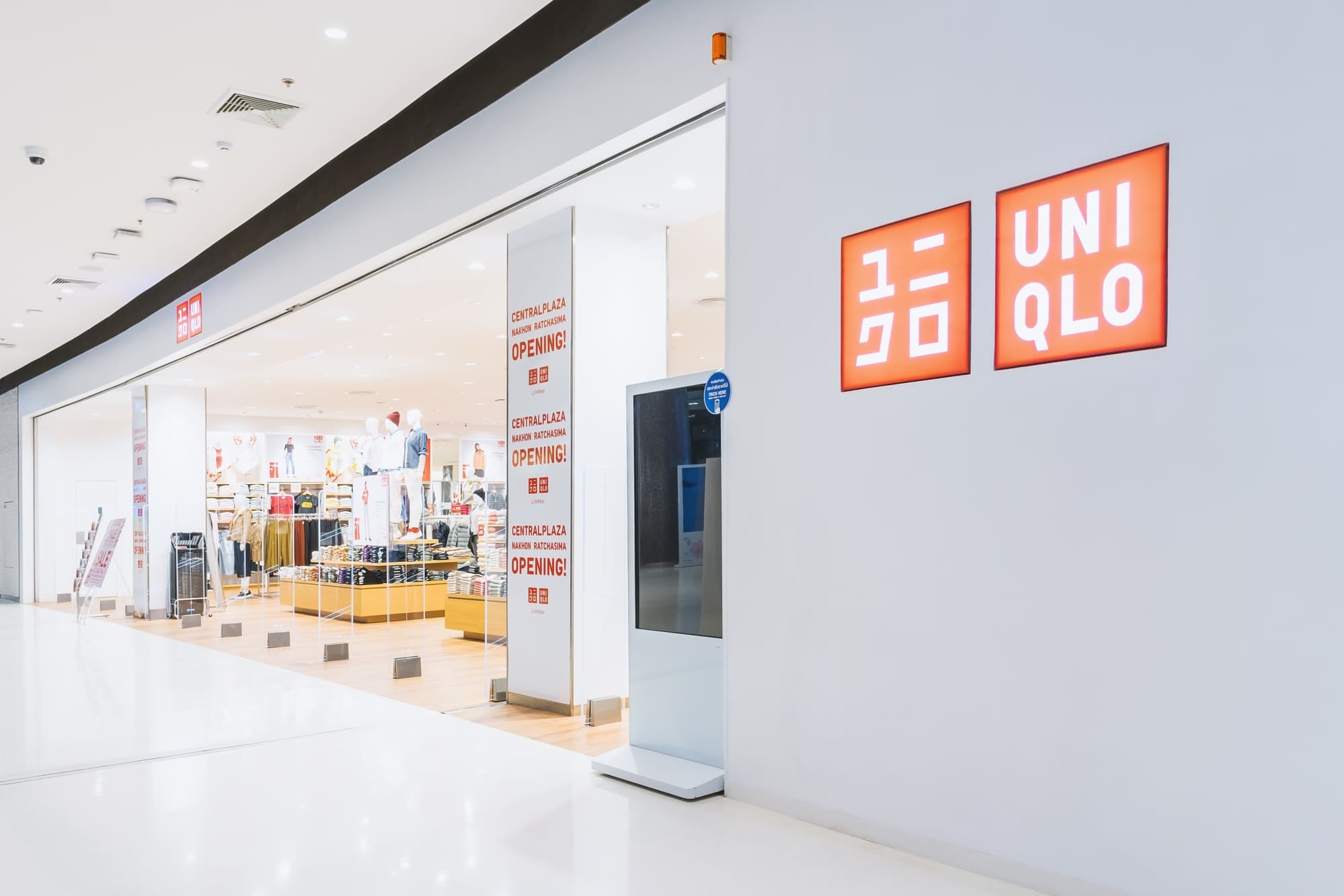
To find the origin of Uniqlo, we have to rewind to 1949 because that's when a clothing brand in Ube, Yamaguchi, was established. This brand was established by the father of Tadashi Yanai, the founder of Uniqlo.
This clothing brand was named "Men's Shop OS" since it only offered clothing for men. However, a few decades later, Tadashi Yani inherited his dad's brand, and that's when he decided to change the operations of the brand entirely.
In 1984, Tadashi Yani changed the brand's name to Uniqlo and started offering women's clothing as well. The vision of Yani was to provide stylish casual clothing to everyone. As a result, people got attracted to the brand, and the customer base of Uniqlo began to increase.
The brand took inspiration from the famous clothing brand Gap and restructured its business model. As a result, Uniqlo started focusing on selling its own clothing, like Gap. Moreover, the clothing brand also maneuvered its marketing strategy and started following in the footsteps of Gap.
Following Gap really helped Uniqlo as it increased its sales. The brand kept growing over the years. However, In the recession of the 1990s, Uniqlo decided to move its manufacturing to China to lower its production cost. As a result, Uniqlo moved abroad in 2002.
The move helped the brand to maximize its profits, and that's when Uniqlo decided to open its retail stores overseas. Initially, this move didn't prove to be very sensible since the brand experienced losses due to some mistakes related to sizing. However, Uniqlo redeemed itself and penetrated the international markets.
Currently, the brand has 2,347 outlets all over the globe which helps the brand to generate huge sums of revenue. In 2021, Uniqlo generated revenue of $19.4 billion. As the brand is increasing its international presence each year, its revenue is also increasing yearly.
Looking at the nature of work, we can assume that a large workforce would be required to carry out the operations of Uniqlo. As of 2021, the brand employs more than 50,000 workers.
Now that we have discussed Uniqlo's background and current operations with you let's proceed further and conduct a Uniqlo PESTLE analysis. However, first, you must know what PESTLE analysis is.
A PEST analysis is used by business analysts to identify the external factors that impact any business. This technique identifies the Political, Economic, Social, Technological, Legal, and Environmental factors that impact an organization's operations.
Now that we are done discussing the PESTLE analysis let's proceed further and carry out Uniqlo's PESTLE analysis.
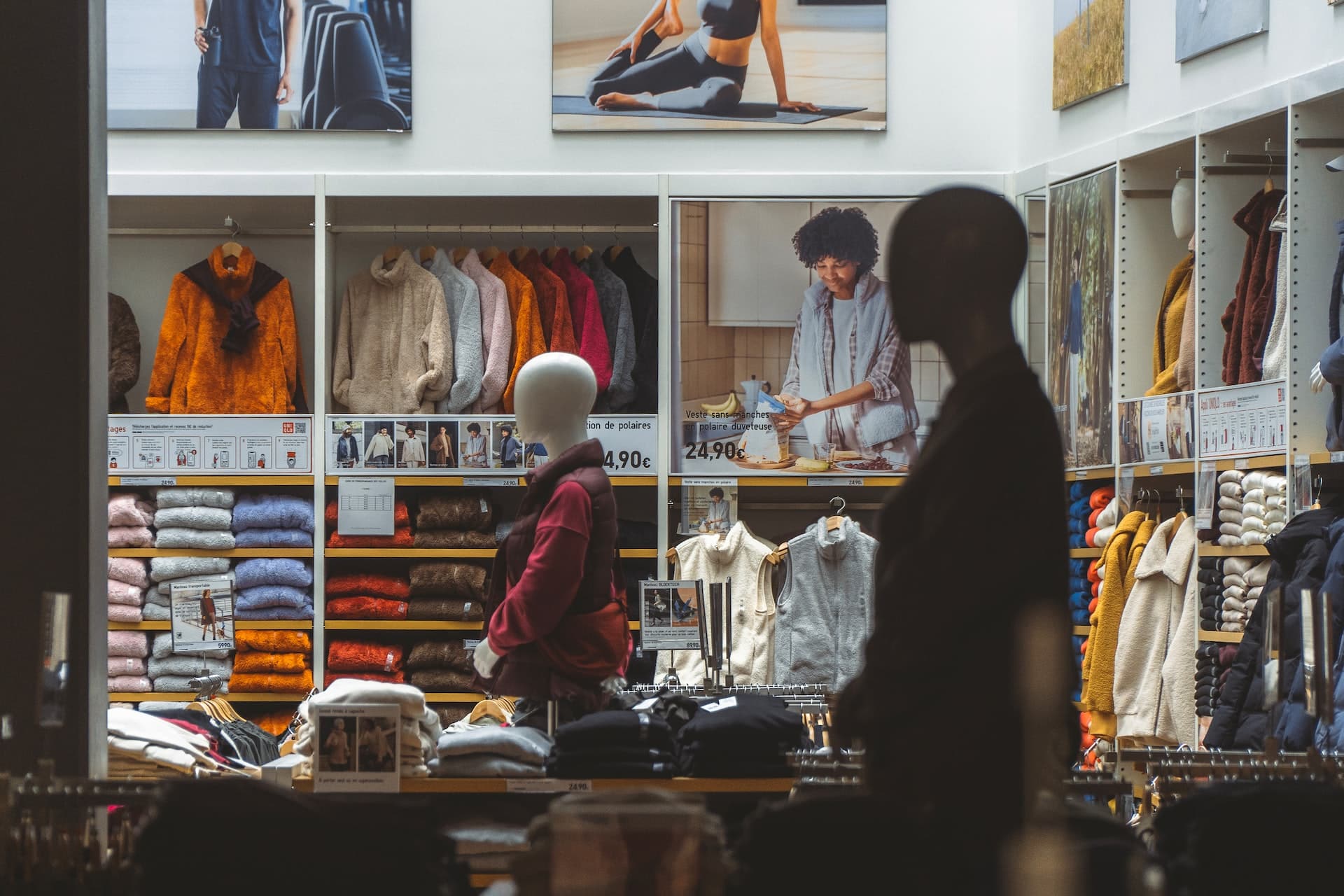
Political Factors Affecting Uniqlo
Every organization operates in a political system; this is why political factors highly impact the performance of any organization. Policies made by the government and the political scenario of a country where a business operates significantly affect the success of a business.
In this section, we will highlight some of the political factors that impact the operations of Uniqlo. Any business needs political stability to function. Since Uniqlo generates significant revenue from its outlets, it requires peace in the market.
Suppose political instability causes protests and political demonstrations in the area where Uniqlo's outlets exist. The brand will experience a lack of sales since fewer customers will visit the store in such circumstances.
Besides that, government policies significantly impact the operations of every business, and Uniqlo is no exception. For example, if a government imposes a high-income tax on businesses. In that case, the profits of Uniqlo will fall, and the brand won't be able to retain high profits.
Other than that, global politics significantly impact the operations of Uniqlo. Since Uniqlo is a multinational brand, it must keep an eye on global politics, or else it can suffer. For example, Uniqlo has manufacturing units in China. If political tension arises between China and Japan, Uniqlo might have to shut down its manufacturing units in China.
Moreover, Uniqlo's operations in different countries can be affected since they highly rely on good political relationships.
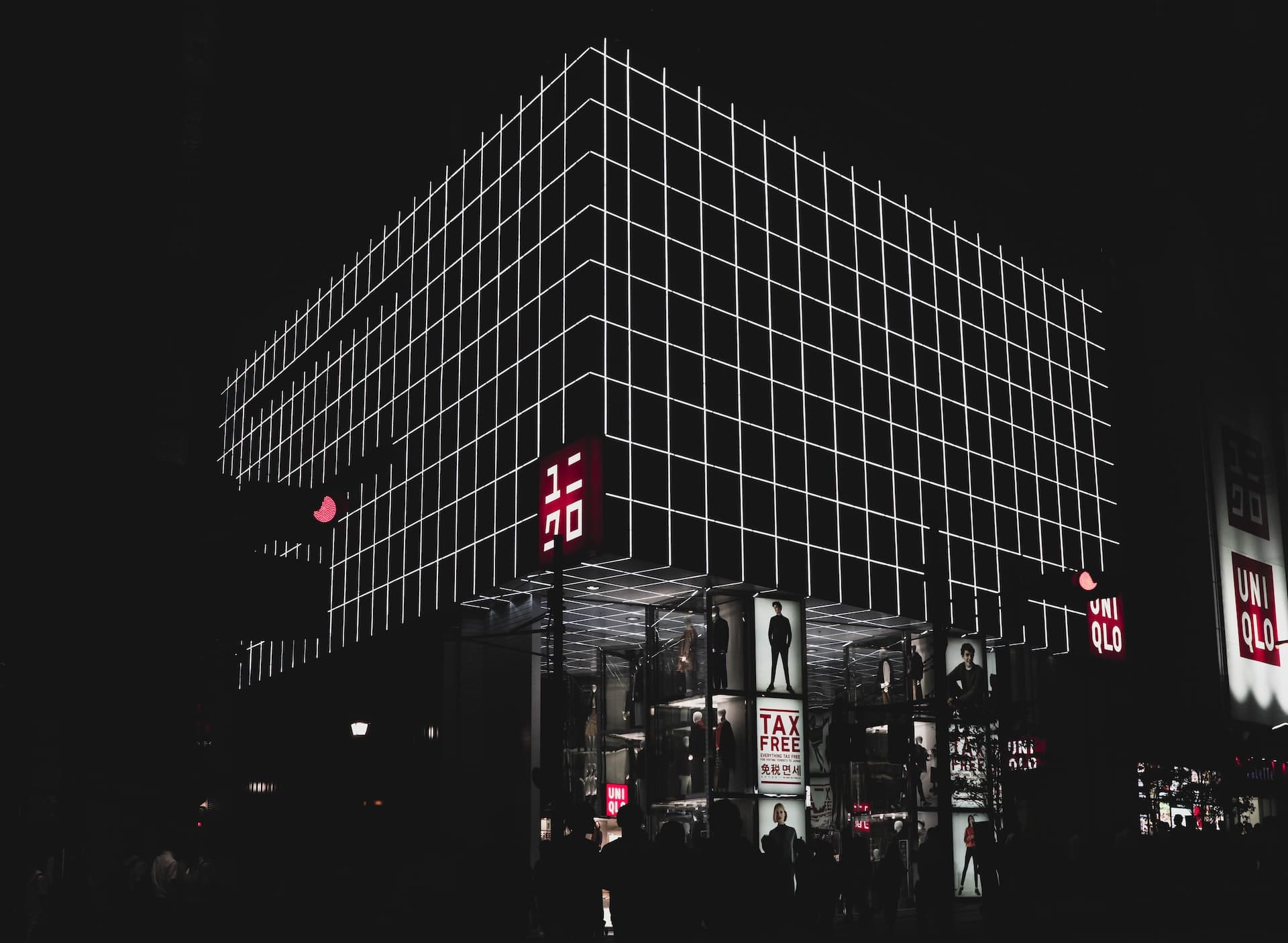
Economic Factors
Economic factors really affect the operations of any organization. Since Uniqlo is a business and businesses are an integral part of the economy, all the economic factors significantly impact the operations of Uniqlo.
Uniqlo's bread and butter are associated with its products' sales. Therefore, the higher the sales would be, the higher the brand's profits. However, the sales of any business mainly depend upon the economic conditions of the country where the brand is operating.
Suppose a country is undergoing a recession. The people of that country will limit their spending due to economic uncertainty. In such cases, retail brands such as Uniqlo have to suffer since the sales of their businesses drop.
Moreover, high inflation also has an inverse relationship with sales. When the prices of commodities increase, customers avoid buying that commodity. Hence, high levels of inflation will adversely affect the sales of Uniqlo.
Other than that, high-interest rates also impact businesses negatively. When the central bank increases the interest rate, people increase their savings and avoid spending. This causes the demand for products to fall, and as a result, brands like Uniqlo generate low revenues.
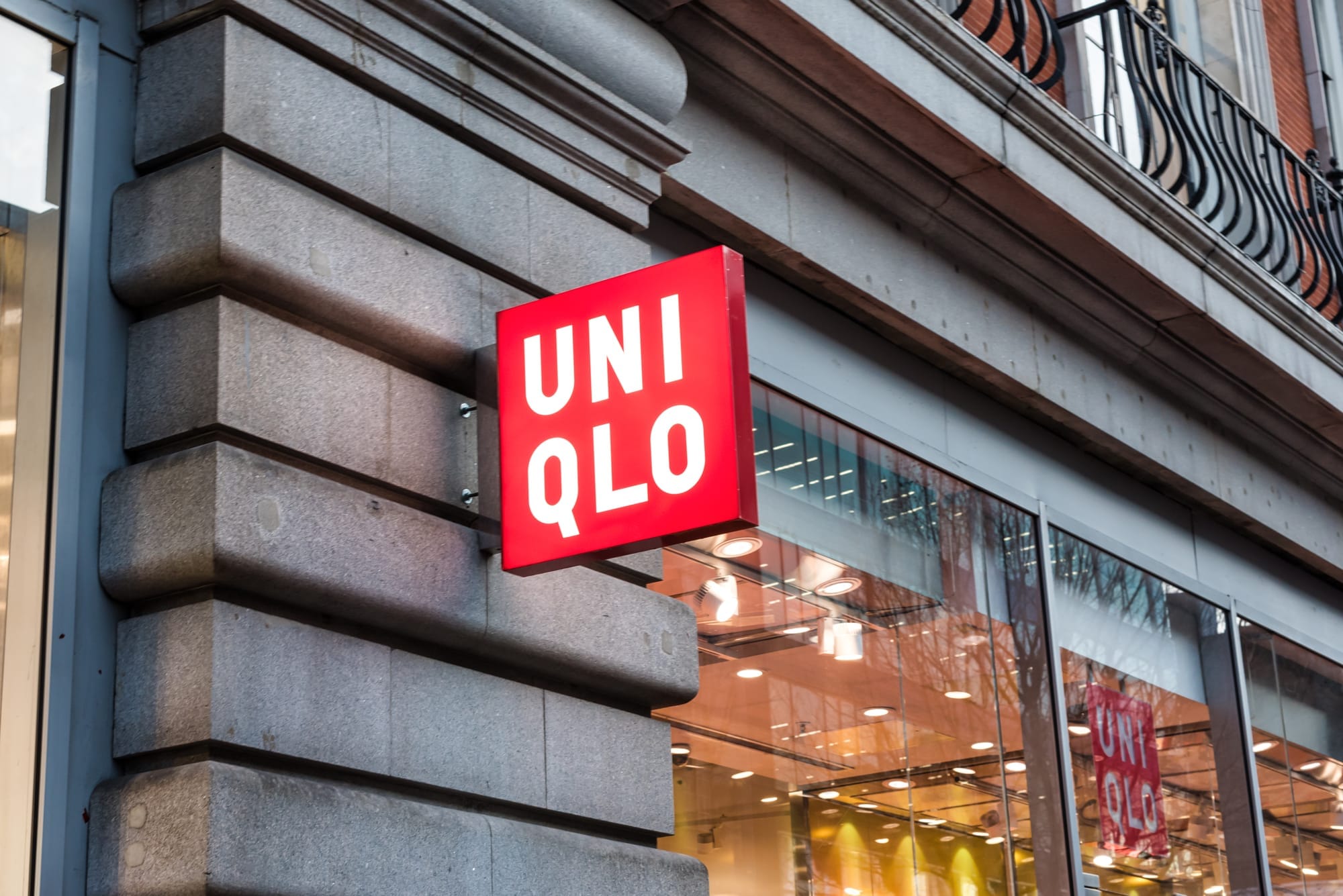
Social Factors
The word "Social" means community, and social factors highlight the factors related to society that impact any organization's operation. Since Uniqlo operates in different societies, it has to analyze the social factors that impact the brand.
Changing fashion trends within a society is something that Uniqlo closely monitors because it has to keep up with the trends that exist in the society where it operates, or else the brand can experience a drop in its sales.
Moreover, the clothing brand also has to study the demographics of each country in detail because demographic factors significantly impact Uniqlo. For example, some countries like Monaco have the highest percentage of the population above the age of 65 years.
In such countries, Uniqlo wouldn't prefer to invest because Uniqlo's products mainly attract young people. Moreover, clothing is linked with ethical values in many societies. Hence, Uniqlo is also affected by the ethical values of every society.
Uniqlo won't be able to generate sales where people think it is ethically wrong to wear clothes offered by Uniqlo.
Technological Factors
The operations of every business are significantly impacted by the technological changes that occur every day. Similarly, technological factors greatly impact Uniqlo since the clothing brand significantly muse technology to carry out its operations.
Recently, the world has observed a boom in the eCommerce industry. This technological change has benefited a lot of brands, including Uniqlo. In 2021, Uniqlo was ranked among the top 100 e-commerce stores. The clothing brand managed to generate revenue of $1.9 billion through e-commerce.
Similarly, like any other business, the main objective of Uniqlo is to maximize its profits. To do that, the brand always looks for ways to increase efficiency by minimizing costs. Therefore, any technological change that increases business efficiency will be embraced by Uniqlo and will impact the brand positively.
Moreover, as social media usage increased, Uniqlo started using social media platforms like Instagram and Facebook for marketing. This has increased Uniqlo's reach significantly and helped the brand increase its customer base. In this way, the technological developments significantly impact the operations of Uniqlo.
Legal Factors
Organizations operate in societies where law exists and are bound to abide by those laws if they wish to continue their operations. Similarly, Uniqlo operates in different countries. As a result, it has to abide by the laws where it operates.
Many legal factors impact the operations of Uniqlo. For example, the clothing brand has to be very careful in dealing with employees in countries where employee protection laws are strict.
For example, recently, Uniqlo was in the line of fire after sacking some of its employees. As a result, the brand has to protect the laws of its employees, or else it can face heavy fines, which will be bad for the company financially.
Other than that, Uniqlo is impacted by the business laws in the country. For example, suppose there are poor or no laws to protect businesses and ensure healthy competition in the market. In that case, Uniqlo might have to suffer because of that.
Besides that, other laws, such as consumer protection and intellectual property laws, significantly affect the operations of Uniqlo. For example, intellectual property laws provide security to the brand and make it easier for it to function.
Environmental Factors
Climate and the environment have a direct or indirect impact on everything. Similarly, businesses are also affected by environmental factors. This section of the PESTLE analysis highlights how environmental factors impact Uniqlo.
As environmental degradation is taking place, countries have made policies regarding waste management and recycling. In many countries, strict actions are now being taken if businesses don't filter their waste before disposing of it and don't take measures to mitigate their carbon emissions.
These environmental conservation policies have increased Uniqlo's operational costs since now the clothing brand has to invest in technologies that help the brand adopt environmentally friendly practices.
Moreover, sudden climatic changes can affect the sales of Uniqlo, which will impact the operations of Uniqlo negatively. For example, unprecedented changes in weather will cause the demand for seasonal clothes to fluctuate.
Besides that, natural disasters caused by climatic changes may disrupt the supply chain of Uniqlo. This will further affect the operations of the clothing brand adversely.
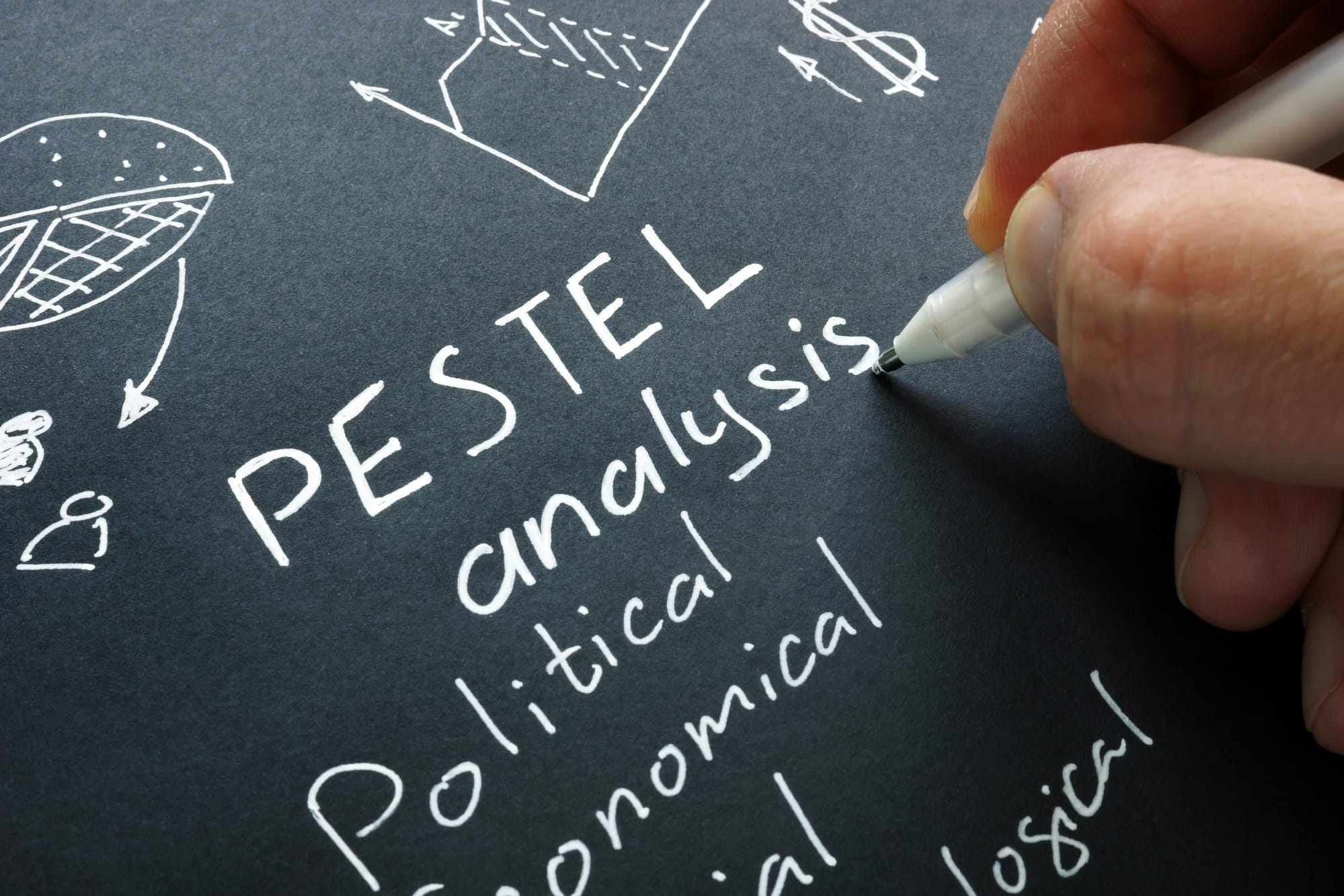
Uniqlo PESTLE Analysis: Final Word
Uniqlo is one of the top-selling clothing brands in the world. It started its operations in Japan, but now it is famous all over the globe. The brand focuses on providing casual clothing options to both genders.
This article took a deep look at the history of Uniqlo and highlighted the current operations of the brand. After analyzing the brand's success, we decided to carry out Its PESTLE analysis. However, before that, we made our readers aware of PESTLE analysis and the need for conducting a Uniqlo PESTLE analysis.
After that, we proceeded with the PESTLE analysis and highlighted the Political, Economic, Social, Technological, Legal, and Environmental factors that affect Uniqlo. This article highlighted the external factors affecting the operations of Uniqlo.
However, if you want to find out about internal and external factors affecting Uniqlo, do look at our Uniqlo SWOT analysis. In the end, we hope our readers are now aware of the external factors affecting Uniqlo as well as the framework of PESTLE analysis. However, if you want to know more about how PESTLE analysis works, look at some examples of PESTLE analysis.

